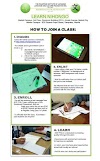My interest in learning Chinese was developed not because this language was widely spoken due to population but because this language will take the lead in the next generation. In the world, Chinese is the largest and if the communist will take over the world, I would not want to be left behind in understanding their commands. Lets the very basic of the Chinese language below.
Chinese and its Origin
One of the consequences of the long duration of Chinese history is that the term ‘Chinese’ has come to have a wide range of applications. It can refer to the earliest records, written on oracle bones, and dated to the second millennium BCE. It can refer to the languages in the Sinitic branch—the ‘Sino’ of the Sino-Tibetan family—which includes not only the standard language but regional languages (‘dialects’) such as Cantonese and Hokkien. (In this sense, Chinese is to the modern Chinese languages as Romance is to the modern Latin languages French, Spanish, Italian, and so on.) Finally, in its most narrow sense, it can refer to the modern standard language, often called Mandarin by
English speakers.
 |
| Chinese Characters and its association to Roman Characters |
Mandarin and Chinese
When the Portuguese began to have extensive contact with China in the late 16th and early 17th centuries, they adapted the word ‘mandarin’ (itself adapted Learning Chinese Sample to Portuguese from Indian and other sources) to refer to Chinese offi cials; hence modern meanings such as ‘powerful offi cial; member of a powerful group’. They also used it for the language spoken by such offi cials, called Guānhuà in Chinese, ‘the speech of offi cials’. Guānhuà was the name given to specialized speaking practices, based on northern Chinese, which served as a lingua franca among offi cials and members of other educated classes who might come from different parts of China and speak mutually unintelligible Chinese in their home regions.
Guānhuà can be regarded as the precursor of the modern standard language. In English, the name ‘Mandarin’ has survived the transformation from specialized language to the modern standard, but the name Guānhuà has not. The Chinese term only survives in the specialized terminology of linguists, who use the term Beˇifāng Guānhuà Tıˇxì ‘northern Guanhua system [of dialects]’ to refer
to the northern dialect grouping that includes Mandarin and other distinct dialects now spoken over a vast stretch of territory in the north, west, and southwest of China. Western linguists often refer to this grouping as the Mandarin dialects, using ‘Mandarin’ in a generic sense. The Mandarin dialects
stand in contrast to other dialect groupings, such as the Cantonese or Fujianese. Strange as it may seem, the Chinese-speaking world has no single term for modern standard Chinese, or Mandarin. In the PRC, it is offi cially called Puˇ tōnghuà (‘the common language’), a term with a legacy dating back to the early part of the 20th century; in Taiwan, it is called Guóyuˇ (‘the national language’), a term dating to at least 1918; while in Singapore, it is called Huáyuˇ (‘the language of the Huá’)—Huá being an ancient name for the Chinese people. In ordinary speech, other terms are often used: Hànyuˇ (‘language of the Han’), for example, or Zhōngwén (‘Chinese-language’). Mainlanders tend to fi nd it strange that English speakers refer to the standard language as Mandarin. Norman (1988: 136) recommends using the term Standard Chinese or, when possible, just Chinese, and keeping Mandarin for the dialect grouping. In certain contexts, Chinese will suffi ce, but at times it will be ambiguous, for it does not rule out Cantonese, Shanghainese, and other so-called ‘dialects’. The longer term, Standard Chinese, is awkward, and assumes Learning Chinese Sample that there is only one standard, which makes it diffi cult to talk about differences in, say, Taiwan and Mainland Mandarin. So, in Learning Chinese, if the simple term ‘Chinese’ is not suffi cient, we fall back on the venerable term ‘Mandarin’, taking heart from the usage of such eminent Chinese as Yuen Ren Chao, who wrote a much-loved textbook called Mandarin Primer (1948), and more recently, Singapore’s Lee Kwan Yew, who wrote a volume describing his own studycalled Keeping My Mandarin Alive (2005).





0 Comments